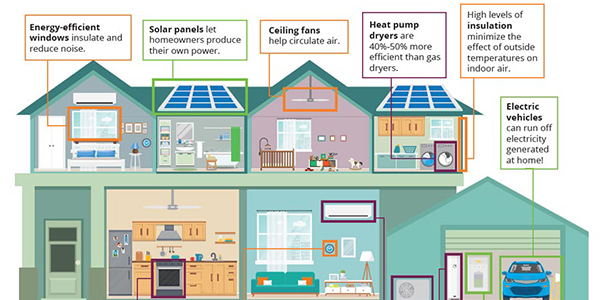By Hudson Sangree
The California Public Utilities Commission has established two building decarbonization pilot programs to jump start the state’s electrification of residential structures, devoting $200 million toward the effort.
The Building Initiative for Low-emissions Development (BUILD) program and the Technology and Equipment for Clean Heating (TECH) initiative were created under Senate Bill 1477, which the state Legislature passed in 2018. Lawmakers tasked the CPUC with implementing the programs.
“These two pilot programs are designed to develop valuable market experience for the purpose of decarbonizing California’s residential buildings in order to achieve California’s zero-emissions goals,” Commissioner Liane Randolph wrote in her proposed decision, which the commission adopted March 26.
“The BUILD program and TECH initiative are building decarbonization pilot programs intended to raise awareness of building decarbonization technologies and applications, test program and policy designs and gain practical implementation experience and knowledge necessary to develop a larger scale approach in the future,” the CPUC said.
The move comes amid efforts by some cities to require electrification of new, and in some circumstances, existing structures. Eliminating furnaces and water heaters that use natural gas could contribute significantly to California’s efforts to become carbon-neutral by midcentury, advocates contend. (See West Coast Pushes for Building Electrification.)
The BUILD program is meant to incentivize technologies in new residential buildings that reduce greenhouse gas emissions (GHG) well beyond the requirements of the state’s building and energy codes.
The California Energy Commission will administer the program with CPUC oversight. At least 30%, or $60 million, of the total $200 million must be earmarked for new low-income housing under SB 1477.
“This percentage is not the ceiling for spending on low-income housing but rather, the floor,” the proposed decision says.
“The CEC should aim to design the BUILD program with the goal to deploy near-zero emission building technologies in the largest number of new residential housing units possible,” it says.
The TECH initiative is intended to promote the adoption of space heating and water heating equipment powered by electricity instead of gas in new and existing residential structures. A third party, still to be selected, will implement the program, with specific technologies still to be identified, the CPUC said.
“To accelerate market development and adoption of building decarbonization technologies targeted under the TECH initiative, we allow the implementer discretion to consider or build upon an array of tactics and approaches,” the CPUC said. “We decline to adopt a prescriptive list of eligible technologies and products until an implementer is selected.”




